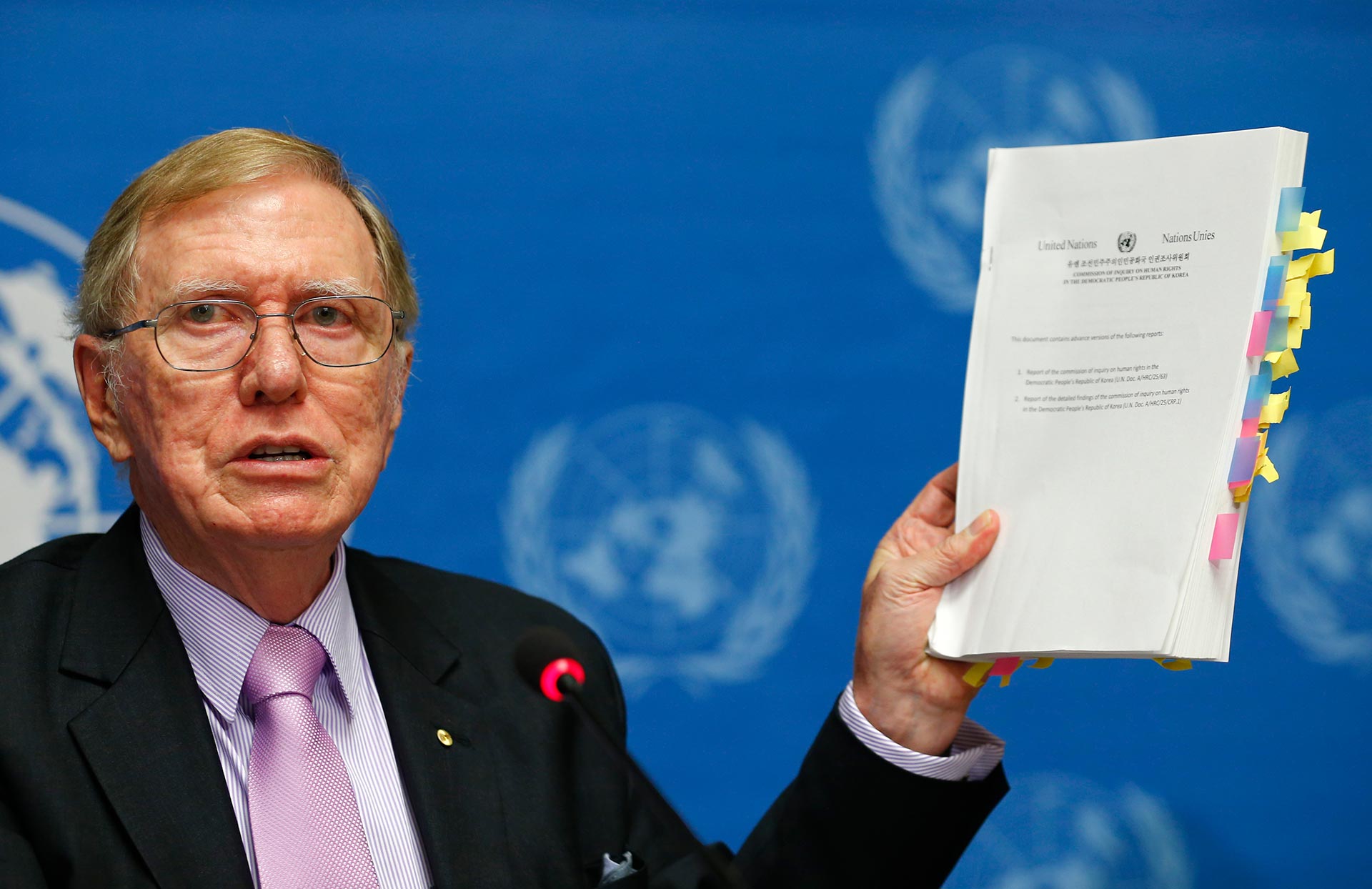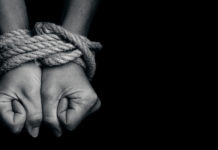Following a question from Baroness Kinnock of Holyhead the Minister of State of the Foreign and Commonwealth Office in the Lords, Baroness Anelay of St Johns, put on the record the UK Government’s backing of the Commission of Inquiry on Human Rights in Eritrea. Responding to the written question, Baroness Anelay said:
“We recognise the important work of the Commission of Inquiry and we share its concerns regarding human rights in Eritrea, in particular widespread arbitrary detention and shortcomings in the rule of law and respect for fundamental freedoms. We regret the Government of Eritrea’s failure to receive the Commission in Asmara, which compelled the Commission in its report to rely on witnesses who are outside the country and whose testimony may have been based on first-hand experience of Eritrea some time ago.
“Eritrea continues to fall short of its international human rights obligations. We have called on Eritrea to honour these obligations through discussions under the UN Universal Periodic Review as well as the EU Article 8 Dialogue. We note that Eritrea has taken some positive steps in engaging with the international community on human rights, including the ratification of the Convention against Torture and Other Cruel, Inhuman or Degrading Treatment or Punishment in September 2014.
“We now call on the Government of Eritrea to follow through on these commitments with concrete action to strengthen the rule of law and to improve the human rights situation on the ground.”
While Eritrea’s ‘positive steps’ are open for debate, to say the least, it’s a positive step to see the UK put on the record their call for the Government of Eritrea to improve the situation for the millions of Eritreans currently living under a regime which cares little for their wellbeing.
It’s also good to see the UK Government recognise the good work of the Commission of Inquiry, whose vital work is so often left unsupported while the Eritrean Government and its allies snipe at the Commission members. The UN Commission of Inquiry gives us one of the starkest reminders of what the people Eritrea currently endure, in the OHCHR’s own words:
The government of Eritrea is responsible for systematic, widespread and gross human rights violations that have created a climate of fear in which dissent is stifled, a large proportion of the population is subjected to forced labour and imprisonment, and hundreds of thousands of refugees have fled the country…. Some of these violations may constitute crimes against humanity.
Citing an array of human rights violations on a scope and scale seldom witnessed elsewhere, the report by the UN Commission of Inquiry on Human Rights in Eritrea describes a totalitarian state bent on controlling Eritreans through a vast security apparatus that has penetrated all levels of society.
“Information gathered through the pervasive control system is used in absolute arbitrariness to keep the population in a state of permanent anxiety,” the 500-page report says. “It is not law that rules Eritreans – but fear.”
The release of the report comes as the international community, particularly governments in Europe, North Africa and the Middle East, struggles to cope with a growing exodus of refugees, asylum seekers and migrants across the Mediterranean and along other irregular routes. Many of them are Eritreans, a significant proportion of whom fall victim to human traffickers while trying to reach Europe. The UN refugee agency placed the number of Eritreans under its concern outside the country at more than 357,400 in mid-2014.
The report strongly urges continued international protection for Eritrean refugees fleeing human rights violations, and warns against sending them back to danger in a country that punishes anyone who tries to leave without permission.
“Faced with a seemingly hopeless situation they feel powerless to change, hundreds of thousands of Eritreans are fleeing their country,” the report says. “In desperation, they resort to deadly escape routes through deserts and neighbouring war-torn countries and across dangerous seas in search of safety. They risk capture, torture and death at the hands of ruthless human traffickers. To ascribe their decision to leave solely to economic reasons is to ignore the dire situation of human rights in Eritrea and the very real suffering of its people. Eritreans are fleeing severe human rights violations in their country and are in need of international protection.”
The commission of inquiry was established by the UN Human Rights Council in June 2014 to conduct an investigation of all alleged violations of human rights in Eritrea, including: extrajudicial killings; enforced disappearances; arbitrary arrest and detention; torture and inhumane prison conditions; violations of freedom of expression and opinion; freedom of association and assembly; freedom of religion and belief; freedom of movement; and forced military conscription.
The three-member commission is chaired by Mr. Mike Smith (Australia), with Mr. Victor Dankwa (Ghana), and Ms. Sheila B. Keetharuth (Mauritius), who also serves as the UN Special Rapporteur on the situation of human rights in Eritrea, as commissioners.
Announcing the release of the report, Ms. Keetharuth urged renewed commitment from the international community to help end the climate of fear in Eritrea.
“With the end of the commission’s investigations and the publication of this report detailing our findings on human rights violations in Eritrea, I look forward to a renewed commitment by the international community to address the justice deficit and to support our call for a restoration of the rule of law,” she said. “Rule by fear – fear of indefinite conscription, of arbitrary and incommunicado detention, of torture and other human rights violations – must end.”
Eritrean authorities ignored repeated requests by the commission for direct access to the country as well as for information. The commission travelled to eight other countries and carried out some 550 confidential interviews with Eritrean witnesses who had fled the Horn of Africa nation. In addition, it received some 160 written submissions.
The report says fear of reprisals, even among witnesses now in third countries, was a major challenge.
The lack of respect for human rights was further evident as the report was being presented to UN Member States. In an unprecedented and shameful opener the 29th Regular Session of the Human Rights Council in Geneva began with the news that the Commission members had been threatened and intimidated in their hotels and in the streets of the Swiss capital. UN security and Swiss police stepped up protection of the Commission members from those proponents of the Eritrean regime’s agenda.
……………………………………
On their bikes!
We’ve just seen fantastic efforts from the Eritrean team in the Tour de France this July as Merhawi Kudus and Daniel Teklehaiman became the first African team to enter the famous race. Not only did they compete but Daniel won the coveted, polka-dot King of the Mountains jersey.
While this Eritrean duo were seeing success on their bikes, others were sent on their bikes a little more ignominiously.
Last month two spokespeople – Lloyd Lipsett and Todd Romaine – from the Canadian mining industry involved in the scandal hit Eritrean mining sector were sent on their bikes following badly botched meetings in London and the cancellation of a planned function hosted by Baroness Oona King, in the House of Lords, designed to give them credibility.
Their London public relations offensive was poorly timed, coming as it did days after the publication of the report by the UN Commission of Inquiry on Human Rights in Eritrea in Geneva on 8 June.
The Commission of Inquiry specifically commented on forced labour and torture in Eritrea, including the Bisha Mine, which “may institute crimes against humanity.” The Bisha Mine is managed by the Canadian mining group Nevsun Resources, which both Lipsett and Romaine represent.
And they had the nerve to be discussing ‘Business and Human Rights in Eritrea’ and “lessons” from the mining industry at Chatham House!
……………………………………
Eritrea in the news
BBC: Eritrean migrants face new asylum battle in EU
The Daily Telegraph:German MP invites Eritrean asylum seekers to live in his house
Reuters: Eritrea sees U.N. scrutiny, migrant exodus as part of ‘conspiracy’
The Guardian: Daniel Teklehaimanot: ‘I’m proud to be an Eritrean riding the Tour de France’
The Guardian: EU sidestep on migrants will do nothing to curb Mediterranean death toll
Awate: Leaked Memo: Eritrea’s Plan To Neutralize Susan Rice
Eritrea in Parliament
Written question, Asylum, Thursday 25 June
Written question, Human rights, Thursday 25 June
Written question, Asylum, Thursday 2 July
Written question, Asylum, Thursday 2 July
Written question, National Service, Thursday 6 July
Written question, Asylum, Thursday 9 July
Written question, UN COI report, Thursday 9 July
Written question, Visits abroad, Thursday 9 July







